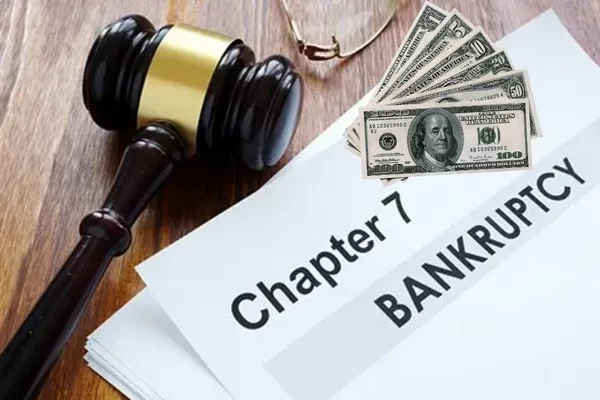
- how-bankruptcy-affects-divorce-timing
- impact-on-property-division-and-assets
- debts-spousal-support-and-bankruptcy-discharge
- real-life-cases-of-bankruptcy-and-divorce
- navigating-legal-options-with-professional-help
1. How Bankruptcy Affects Divorce Timing
When a couple faces both divorce and bankruptcy, timing becomes a critical legal and strategic decision. Whether bankruptcy is filed before, during, or after divorce significantly changes the process and outcome for both parties. For instance, filing for Chapter 7 bankruptcy before divorce can simplify the property division process by discharging unsecured debts, whereas a Chapter 13 filing may complicate matters with a 3-to-5-year repayment plan.
In most cases, a bankruptcy filing puts an automatic stay on any pending litigation, including divorce proceedings that involve asset division. This means divorce courts must pause until the bankruptcy court resolves the debtor’s financial matters. This pause can delay divorce finalization, often causing emotional and financial strain.
If you’re uncertain about how to time these legal processes, ESPLawyers can help analyze your financial picture and recommend the best approach to protect your rights during both proceedings.
2. Impact on Property Division and Assets
2.1 Bankruptcy Estate vs. Marital Property
When bankruptcy is filed, most of a filer’s property becomes part of the bankruptcy estate, subject to liquidation or repayment depending on the chapter filed. This limits what can be divided during divorce. For example, a jointly owned car or home could be sold to satisfy debts, even if one spouse wishes to retain it.
2.2 Exemptions and State Laws
Each state has exemption laws that protect certain assets—like household items, retirement accounts, or primary residences—up to specific limits. Whether and how these exemptions apply during divorce depends on where the couple resides. One spouse may receive more protection than the other, depending on how the property is titled and which spouse filed for bankruptcy.
2.3 Hidden Assets and Bankruptcy Fraud
If one party attempts to hide marital assets by transferring or underreporting them in a bankruptcy petition, it can lead to fraud allegations and criminal penalties. Courts take asset concealment seriously, and any signs of financial manipulation can impact both the bankruptcy discharge and divorce settlement.
3. Debts, Spousal Support, and Bankruptcy Discharge
3.1 Not All Debts Are Discharged
Bankruptcy can eliminate many unsecured debts like credit cards or medical bills. However, it cannot discharge domestic support obligations such as alimony or child support. These debts remain enforceable regardless of a bankruptcy filing, meaning the spouse responsible must continue payments.
3.2 Divorce-Related Debts and Indemnification
If one spouse agrees to assume joint debts during divorce—say, a shared credit card—the other may think they’re off the hook. However, if the responsible party files for bankruptcy and discharges that debt, creditors may go after the other spouse. Divorce settlements can include indemnification clauses, but enforcing them may require additional legal action post-bankruptcy.
3.3 Property Settlements vs. Support Obligations
Some divorce-related obligations may fall into a gray area. For instance, a property settlement obligation—such as paying the other spouse a lump sum for equity in a home—can sometimes be discharged in Chapter 13 bankruptcy. But support-related payments, even if labeled differently, usually survive bankruptcy.
If your divorce involves financial support or shared debt, consulting professionals like ESPLawyers can help you distinguish what’s protected and what may be at risk in bankruptcy court.
4. Real-Life Cases of Bankruptcy and Divorce
4.1 The Business Owner’s Dilemma
A couple in Denver faced divorce just as the husband’s startup collapsed. He filed for Chapter 7 bankruptcy, which froze their divorce proceedings for months. During that time, the trustee seized their joint savings and attempted to liquidate the couple’s home, which was listed under his name. The wife, caught in the financial fallout, had to negotiate aggressively for a fair division of remaining exempt property.
4.2 Hidden Debt Revealed Too Late
In a Chicago case, the wife discovered massive credit card debt under her name during divorce that she had never used. The husband had secretly used joint cards, racking up over $60,000. When he filed for bankruptcy, she was left responsible. Although her divorce lawyer had included indemnity language, she still had to take him back to court to enforce it.
4.3 Collaborative Divorce Done Right
A couple in Seattle facing financial hardship filed for joint bankruptcy before starting their divorce. By eliminating their unsecured debt first, they simplified property division and ensured both parties walked away with clean financial slates. While not always feasible, joint filing and honest negotiation can prevent drawn-out legal disputes.
5. Navigating Legal Options with Professional Help
5.1 Coordinating Between Bankruptcy and Divorce Attorneys
Divorce and bankruptcy are two of the most emotionally taxing legal issues people face. Having professionals who understand both areas is crucial. Coordination ensures your rights are protected and avoids contradictory rulings—for example, dividing property in divorce that is already under bankruptcy court jurisdiction.
5.2 Timing and Jurisdiction Strategies
The order in which you file—divorce first or bankruptcy first—should depend on your goals. If asset protection is critical, a bankruptcy first might help. If preserving alimony or ensuring debt responsibility lies with one spouse, divorce first may be better. Every case is different.
5.3 How ESPLawyers Can Help
Whether you're facing financial hardship, the breakdown of a marriage, or both, ESPLawyers offers customized legal strategies to address your specific situation. Their experienced team understands how bankruptcy law and family law intersect—and will work to protect your future with clarity and confidence.








